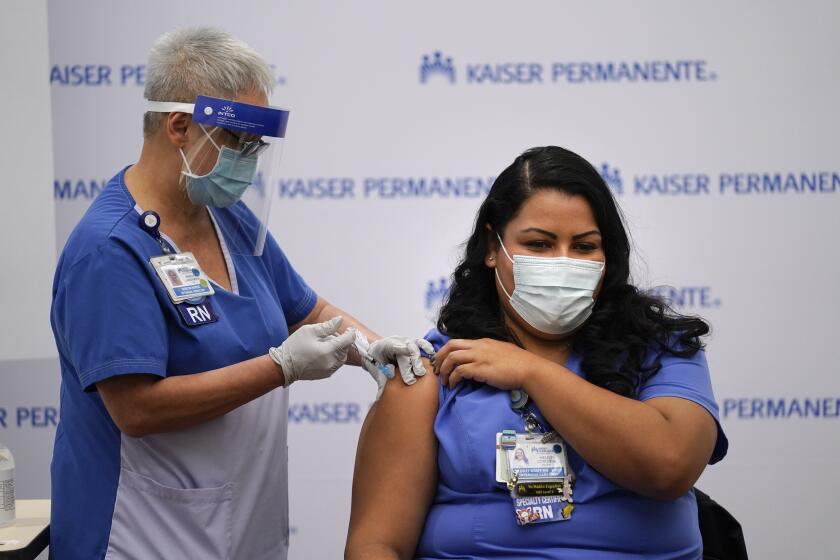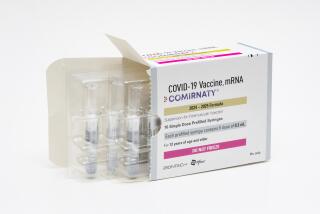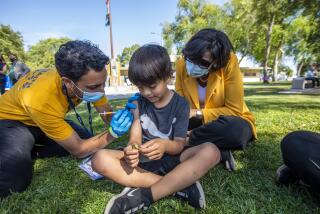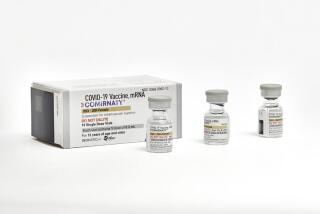FDA review says Moderna’s COVID-19 vaccine is safe and effective
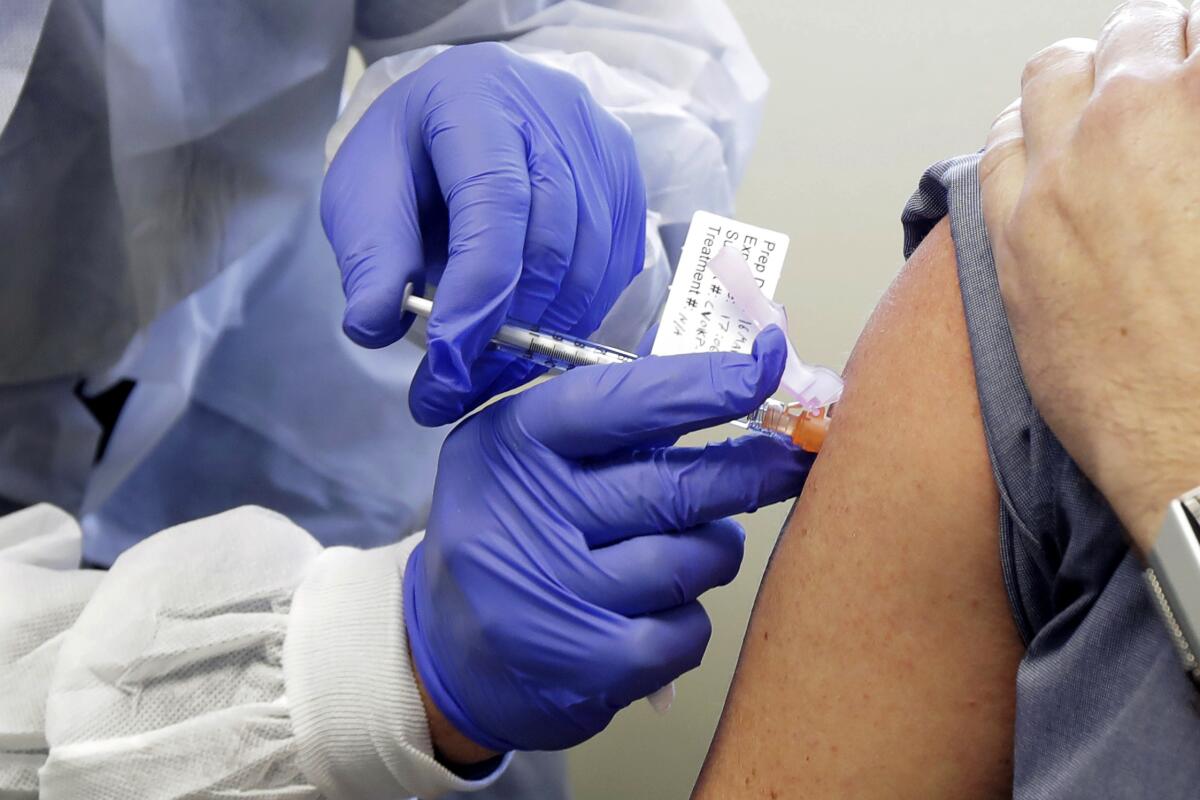
- Share via
Federal regulators have issued a positive review of Moderna’s COVID-19 vaccine, boosting the chances of emergency approval of a second vaccine that would bolster the nation’s largest-ever inoculation campaign.
The Food and Drug Administration said in documents posted online Tuesday that its initial review confirmed the efficacy and safety of the vaccine developed by Moderna and the National Institutes of Health, bringing the shot to the cusp of U.S. authorization.
A panel of outside experts will offer its recommendation Thursday on whether the FDA should issue emergency-use authorization for the vaccine. The FDA is expected to issue its decision soon thereafter.
The positive news comes as hospitals across the U.S. begin ramping up vaccinations with the shot developed by Pfizer and BioNTech, which the FDA cleared last week.
Emergency use of the Pfizer-BioNTech vaccine began in the U.S. on Monday.
U.S. officials project that 20 million Americans will be able to get their first COVID-19 shots by the end of December, and 30 million more in January.
But while the vaccine offers promise, it comes as the U.S. is facing the darkest moment of the coronavirus crisis. On Monday, the U.S. death toll topped 300,000, and California, like much of the nation, is in the throes of the worst wave of the disease.
That projection assumes swift authorization of Moderna’s vaccine later this week. Like the Pfizer-BioNTech vaccine, Moderna’s requires two shots for full protection.
Moderna’s vaccine is the same type as Pfizer’s, made with the same brand-new technology. In scrutinizing early results of a 30,000-person study, the FDA found it also worked just about the same.
The Moderna vaccine was more than 94% effective overall at preventing COVID-19 illness and 86% effective in people 65 and older. The FDA uncovered no major safety issues.
Some recipients experienced temporary flu-like side effects that can include fever, fatigue and aches, especially after the second dose, as the vaccine revs up their immune system.
Even such a large study can’t detect very rare problems or reactions. But the FDA looked carefully for signs of allergic reactions after Britain last week reported some adverse responses among people with a history of severe allergies.
The FDA found no serious allergic reactions in the Moderna study. About 1.5% of vaccine recipients and 1.1% who got dummy shots reported possible smaller, “hypersensitivity” reactions.
Both Moderna’s and Pfizer and BioNTech’s shots are so-called mRNA vaccines, which use a new technology. They aren’t made with the coronavirus itself, meaning there’s no chance anyone could catch it from the shots. Instead, the vaccine contains a piece of genetic code that trains the immune system to recognize the spiked protein on the surface of the virus.
